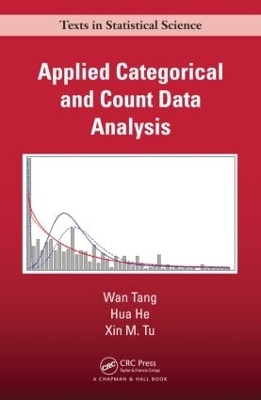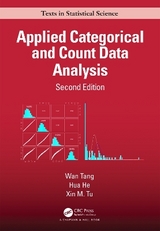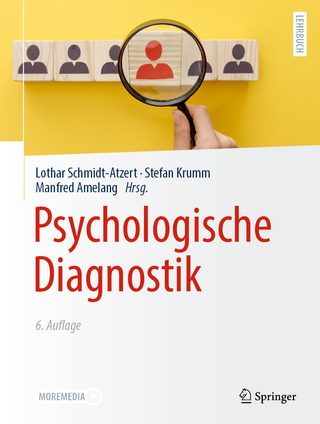
Applied Categorical and Count Data Analysis
Taylor & Francis Inc (Verlag)
978-1-4398-0624-1 (ISBN)
- Titel erscheint in neuer Auflage
- Artikel merken
Developed from the authors’ graduate-level biostatistics course, Applied Categorical and Count Data Analysis explains how to perform the statistical analysis of discrete data, including categorical and count outcomes. The authors describe the basic ideas underlying each concept, model, and approach to give readers a good grasp of the fundamentals of the methodology without using rigorous mathematical arguments.
The text covers classic concepts and popular topics, such as contingency tables, logistic models, and Poisson regression models, along with modern areas that include models for zero-modified count outcomes, parametric and semiparametric longitudinal data analysis, reliability analysis, and methods for dealing with missing values. R, SAS, SPSS, and Stata programming codes are provided for all the examples, enabling readers to immediately experiment with the data in the examples and even adapt or extend the codes to fit data from their own studies.
Designed for a one-semester course for graduate and senior undergraduate students in biostatistics, this self-contained text is also suitable as a self-learning guide for biomedical and psychosocial researchers. It will help readers analyze data with discrete variables in a wide range of biomedical and psychosocial research fields.
Wan Tang is a Clinical Associate Professor in the Department of Global Biostatistics and Data Science, Tulane University School of Public Health and Tropical Medicine. Dr. Tang’s research interests include longitudinal data analysis, missing data modeling, structural equation models, causal inference, and nonparametric smoothing methods. Hua He, Ph.D. is an Associate Professor in Biostatistics at the Department of Epidemiology at Tulane University School of Public Health and Tropical Medicine. Dr. He is a highly experienced biostatistician with expertise in longitudinal data analysis, structural equation models, potential outcome based causal inference, distribution-free models, ROC analysis and their applications to observational studies, and randomized controlled trials across a range of disciplines, especially in the behavioral and social sciences. She has co-authored a series of publications in peer-reviewed journals, one textbook on categorical data analysis and co-edited a book on statistical causal inference and their applications in public health research. Xin Tu (Ph.D.) is a Professor in the Division of Biostatistics and Bioinformatics, Department of Family Medicine and Public Health, UCSD. Dr. Tu is well versed in statistical methods and their applications to a range of disciplines, particularly within the fields of biomedical, behavioral and social sciences. He has co-authored over 200 peer-reviewed publications, two textbooks on categorical data and applied U-statistics, and co-edited books on modern clinical trials and social network data analysis. He has done important work in the areas of longitudinal data analysis, U-statistics, survival analysis with interval censoring and truncation, and pooled testing, and has successfully applied his novel development to addressing important methodological problems in HIV/AIDS, mental health and psychosocial research.
Introduction. Contingency Tables. Sets of Contingency Tables. Regression Models for Categorical Response. Regression Models for Count Response. Loglinear Models for Contingency Tables. Analyses of Discrete Survival Time. Longitudinal Data Analysis. Evaluation of Instruments. Analysis of Incomplete Data. References. Index.
| Erscheint lt. Verlag | 16.7.2012 |
|---|---|
| Reihe/Serie | Chapman & Hall/CRC Texts in Statistical Science |
| Zusatzinfo | 28 Tables, black and white; 7 Illustrations, black and white |
| Verlagsort | Washington |
| Sprache | englisch |
| Maße | 156 x 234 mm |
| Gewicht | 680 g |
| Themenwelt | Geisteswissenschaften ► Psychologie |
| Mathematik / Informatik ► Mathematik | |
| Naturwissenschaften ► Biologie | |
| ISBN-10 | 1-4398-0624-1 / 1439806241 |
| ISBN-13 | 978-1-4398-0624-1 / 9781439806241 |
| Zustand | Neuware |
| Informationen gemäß Produktsicherheitsverordnung (GPSR) | |
| Haben Sie eine Frage zum Produkt? |
aus dem Bereich



